Tools Required
J 8087 Cylinder Bore
Gage
Piston Cleaning
- Clean the piston skirts and the pins with a cleaning solvent.
DO NOT wire brush any part of the piston.
- Clean the piston ring grooves with a groove cleaner. Ensure that
the oil ring holes and slots are clean.
Caution: Wear safety glasses in order to avoid eye damage.
- Dry the piston with compressed air.
Piston Inspection
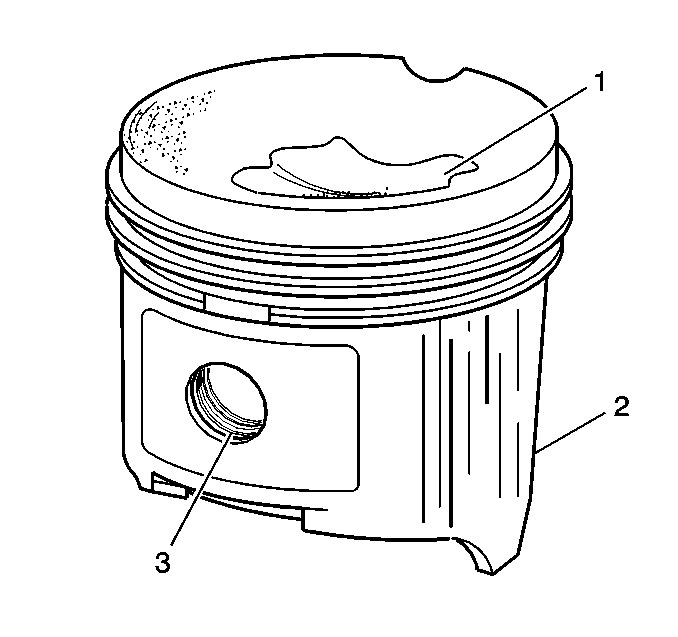
- Inspect the pistons for
the following conditions:
| • | Cracked ring lands, skirts, or pin bosses |
| • | Ring grooves for nicks, burrs that may cause binding |
| • | Warped or worn ring lands |
| • | Piston pin retainer grooves for burrs |
| • | Eroded areas at the top of the piston (1) |
| • | Scuffed or damaged skirts (2) |
| • | Worn piston pin bores (3) or worn piston pins |
- Replace pistons that show any signs or damage or excessive wear.
Piston Measurement

- Measure piston width using
the following procedure:
| 1.1. | Using an outside micrometer, measure the width of the piston at
38 mm (1) (1.5 in) below the crown, top, at the thrust
surfaces of the piston, perpendicular to the piston pin centerline. |
| 1.2. | Compare the measurement of the piston to its original cylinder
by subtracting the piston width from the cylinder diameter. |
| 1.4. | If the clearance obtained through measurement is greater than
the provided specifications and the cylinder bores are within specification,
replace the piston. |
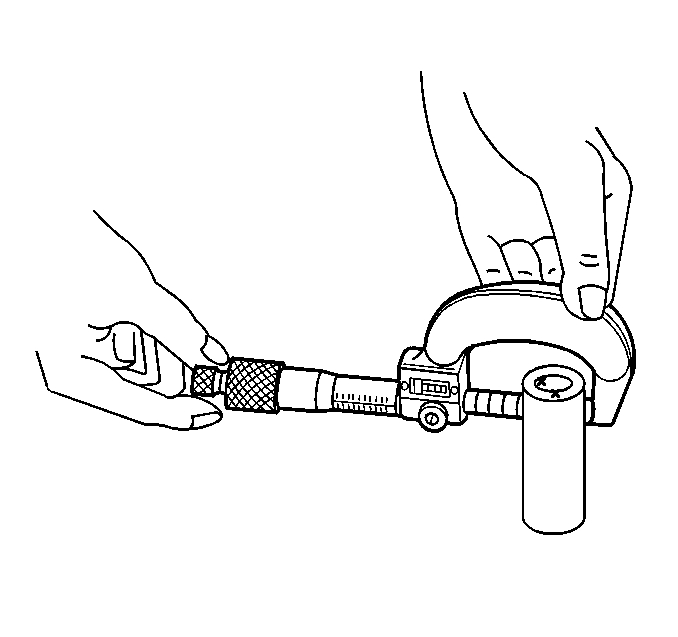
- Measure the piston pin
bore to piston pin clearances using the following procedure:
| 2.1. | Piston pin bores and pins must be free of varnish or scuffing. |
| 2.2. | Use an outside micrometer to measure the piston pin in the piston
contact areas. |
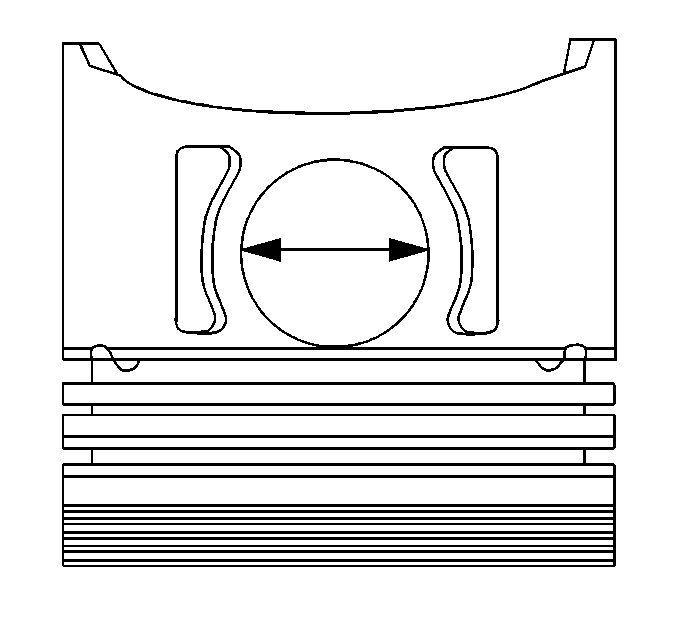
- Using an inside micrometer,
measure the piston pin bore.
- Compare your result with the piston diameter and piston to cylinder
bore clearance listed in the
Engine Mechanical Specifications
.
- If the clearance is excessive, determine which piece is out of
specification and replace as necessary.
- You must replace the piston if any of its dimensions are out of
specification. There are no oversized pistons available.
Piston Ring Measurement
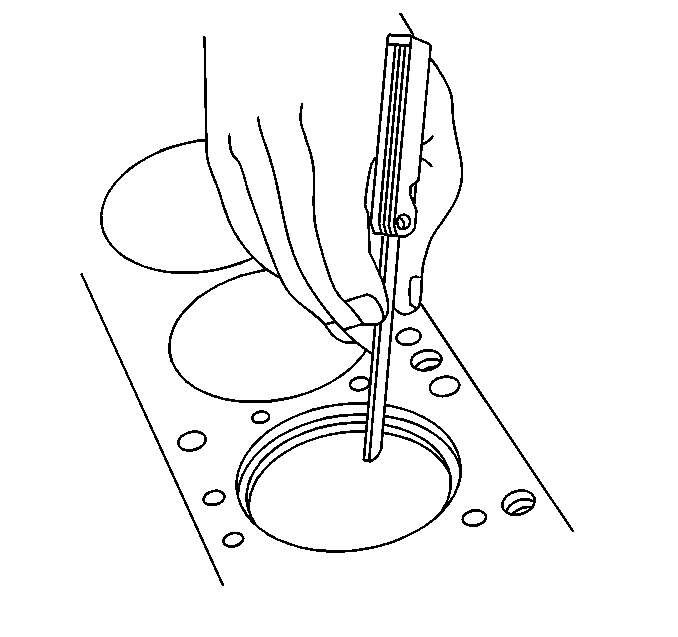
- Measure the piston ring
end gap using the following procedure:
| 1.1. | Place the piston ring in the area of the bore where the piston
ring will travel, approximately 25 mm (1 in) down from the deck
surface. Ensure that the ring is square with the cylinder bore by positioning
the ring with the piston head. |
| 1.3. | If the clearance exceeds the provided specifications, the piston
rings must be replaced. |
| 1.4. | Repeat the procedure for all the piston rings. |
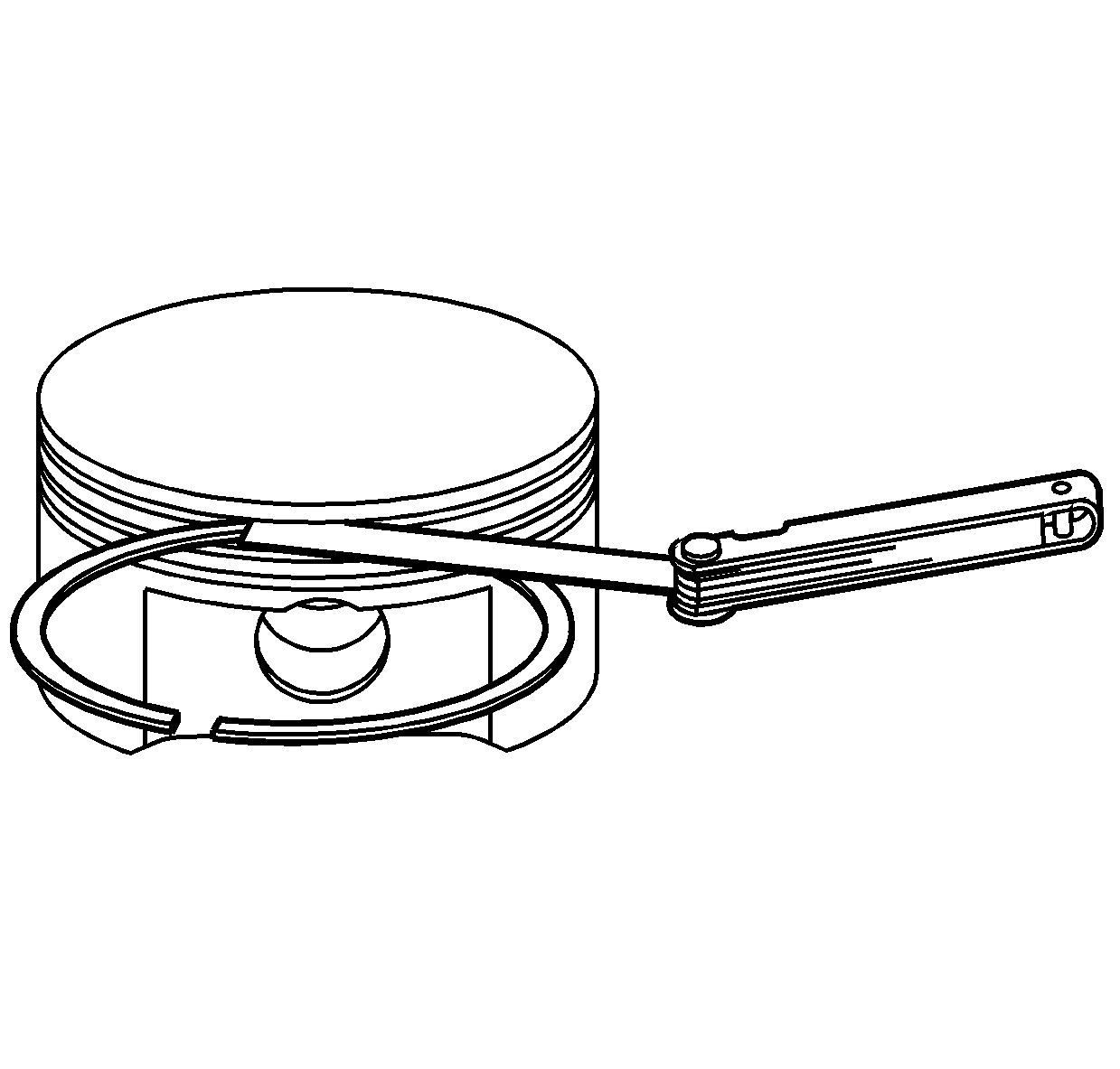
- Measure the piston ring side clearance using the following procedure:
| 2.1. | Roll the piston ring entirely around the piston ring groove. If
any binding is caused by the ring groove, dress the groove with a fine file.
If any binding is caused by a distorted piston ring, replace the ring. |
| 2.2. | With the piston ring on the piston, use feeler gages to check
clearance at multiple locations. |
| 2.4. | If the clearance is greater than specifications, replace the piston
rings. |
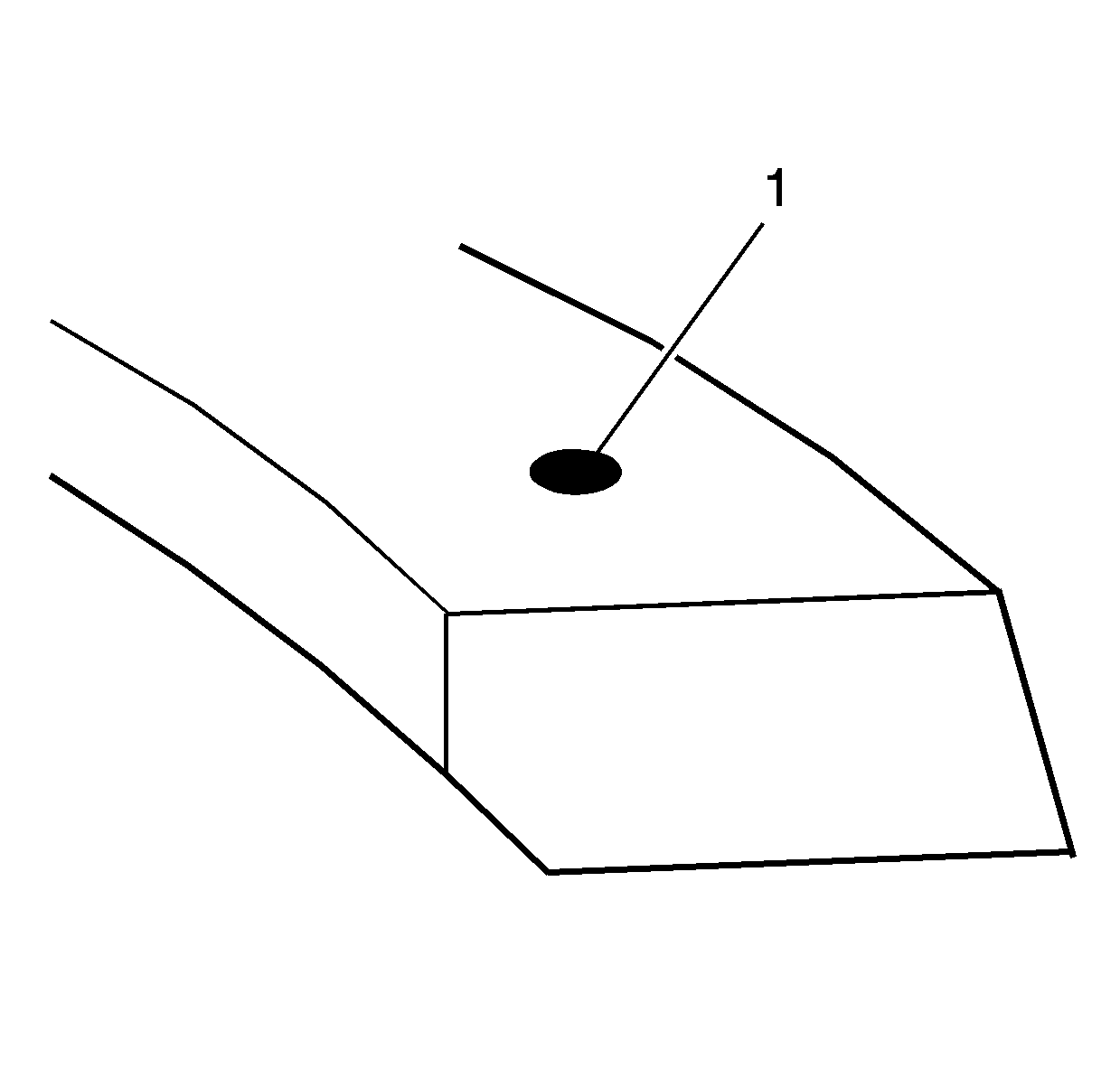
- When replacing the piston
rings, only install re-ring sets that have a 1.2 mm (0.0472 in)
thick steel upper compression ring and multi-piece oil rings. The top compression
ring may be installed with either side up. There is a locating dimple (1)
on the 2nd compression ring near the end for identification of the top side.
Install the 2nd compression ring with the dimple facing up.
- If the new ring does not reduce the clearance to the proper specification,
install a new piston.
Connecting Rod Cleaning
- Clean the connecting rods in solvent.
Caution: Wear safety glasses in order to avoid eye damage.
- Dry the connecting rod using compressed air.
- Remove the connecting rod cap and clean the threads. If you have
not done so already, discard the connecting rod bolts (3). The bolts
are not reusable.
- Remove the connecting rod bearing and discard. Never reuse a connecting
rod bearing used in a running engine.
Connecting Rod Visual Inspection
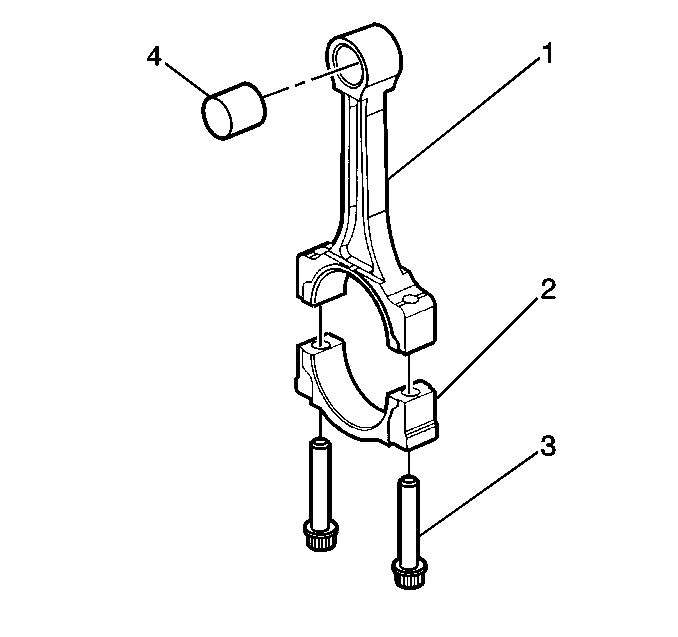
- Inspect the piston pin
bushing (4) for scoring or damage.
- Check the connecting rod beam (1) for twisting or bending.
- Check the rod cap (2) for any nicks or damage caused by
possible interference.
- Inspect for scratches or abrasion on the rod bearing seating surface.
- If the connecting rod bores contain minor scratches or abrasions,
clean the bores in a circular direction with a light emery paper. DO NOT scrape
the rod or rod cap.
Connecting Rod Measurement
- Using an outside micrometer, take two measurements of the piston
pin in the area of the connecting rod contact.
- Using an inside micrometer, measure the connecting rod piston
pin bore.
- Subtract the piston pin diameter from the piston pin bore.
- Compare the clearance measurements with the
Engine Mechanical Specifications
.
- If the clearance is excessive, replace the piston pin. If a new
pin does not resolve the clearance problem, replace the connecting rod.
Important: Measurements of all components should be taken with the components at
normal room temperature.
For proper piston fit, the engine block cylinder bores should not have
excessive wear or taper.
A used piston and pin set may be reinstalled if, after cleaning and
inspection, they are within specifications.
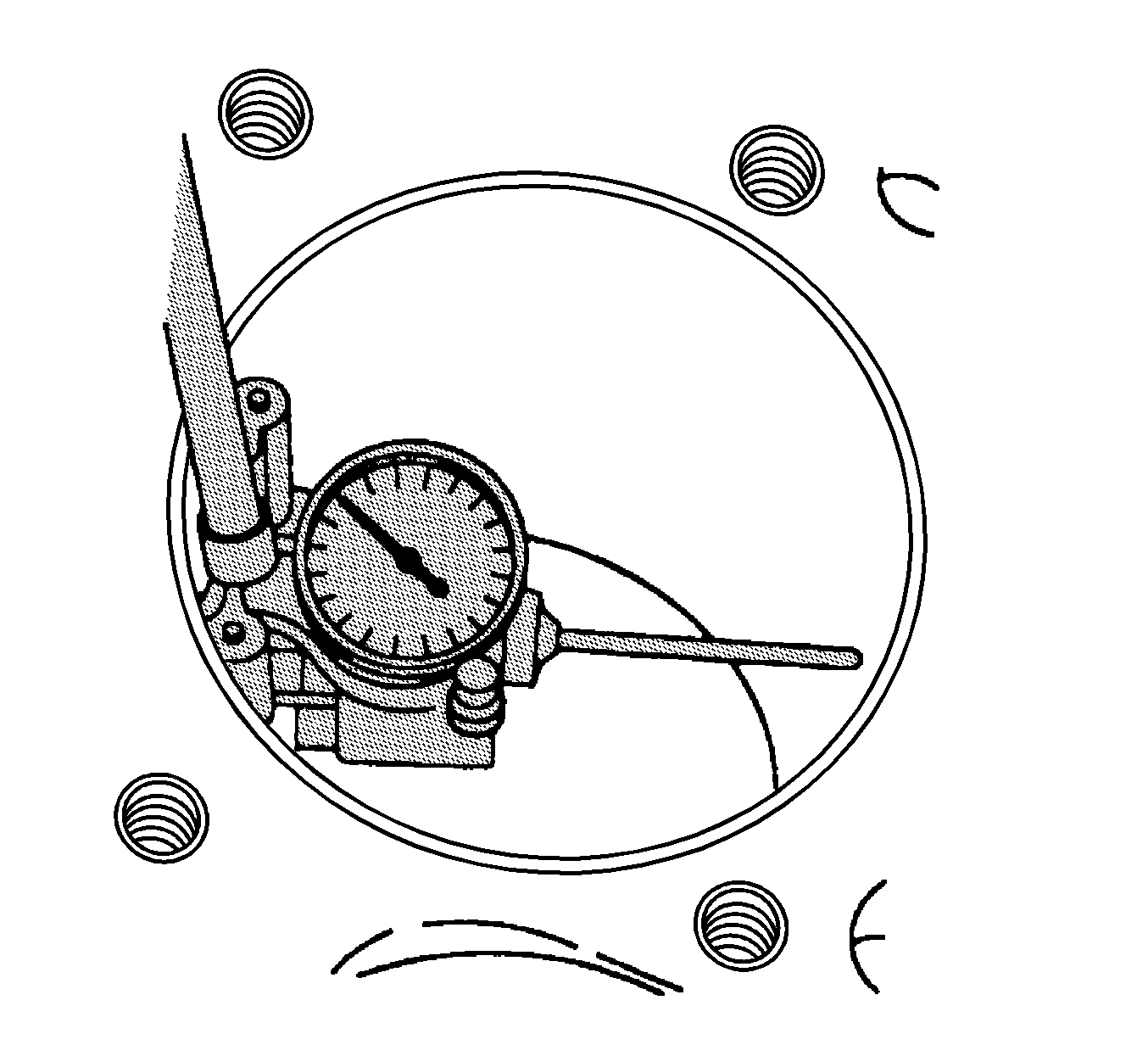
- Inspect the engine block
cylinder bore.
- Inspect the piston and pin.
- Use the J 8087
and measure the cylinder bore diameter. Measure at a point 64 mm (2.5 in)
from the top of the cylinder bore.
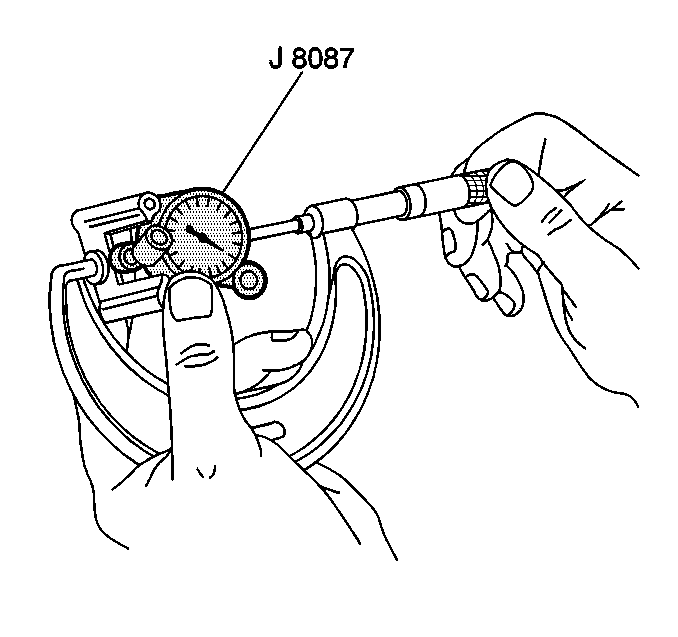
- Measure the J 8087
with a micrometer and record the reading.
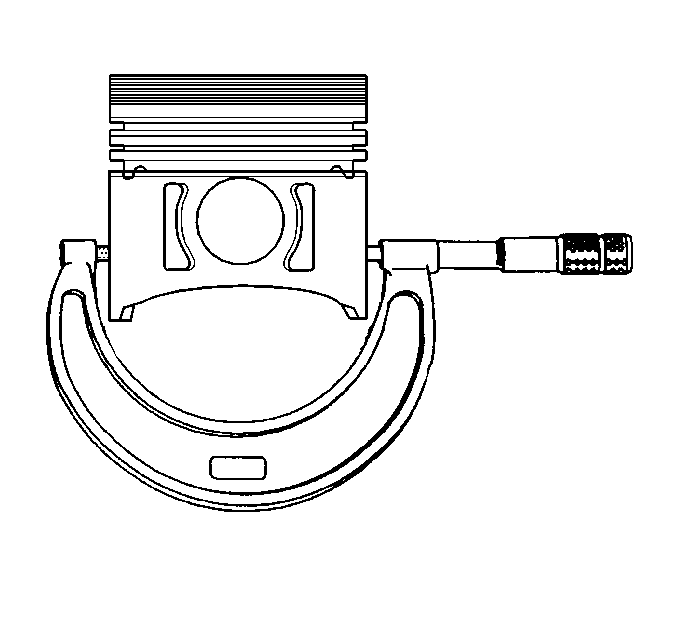
- With a micrometer or caliper
at a right angle to the piston, measure the piston 11 mm (0.433 in)
from the bottom of the skirt.
- Subtract the piston diameter from the cylinder bore diameter in
order to determine piston-to-bore clearance. Refer to
Engine Mechanical Specifications
.
- If the proper clearance cannot be obtained, select another piston
and measure the clearances.
- When the piston-to-cylinder bore clearance is within specifications,
permanently mark the top of the piston for installation into the proper cylinder.











